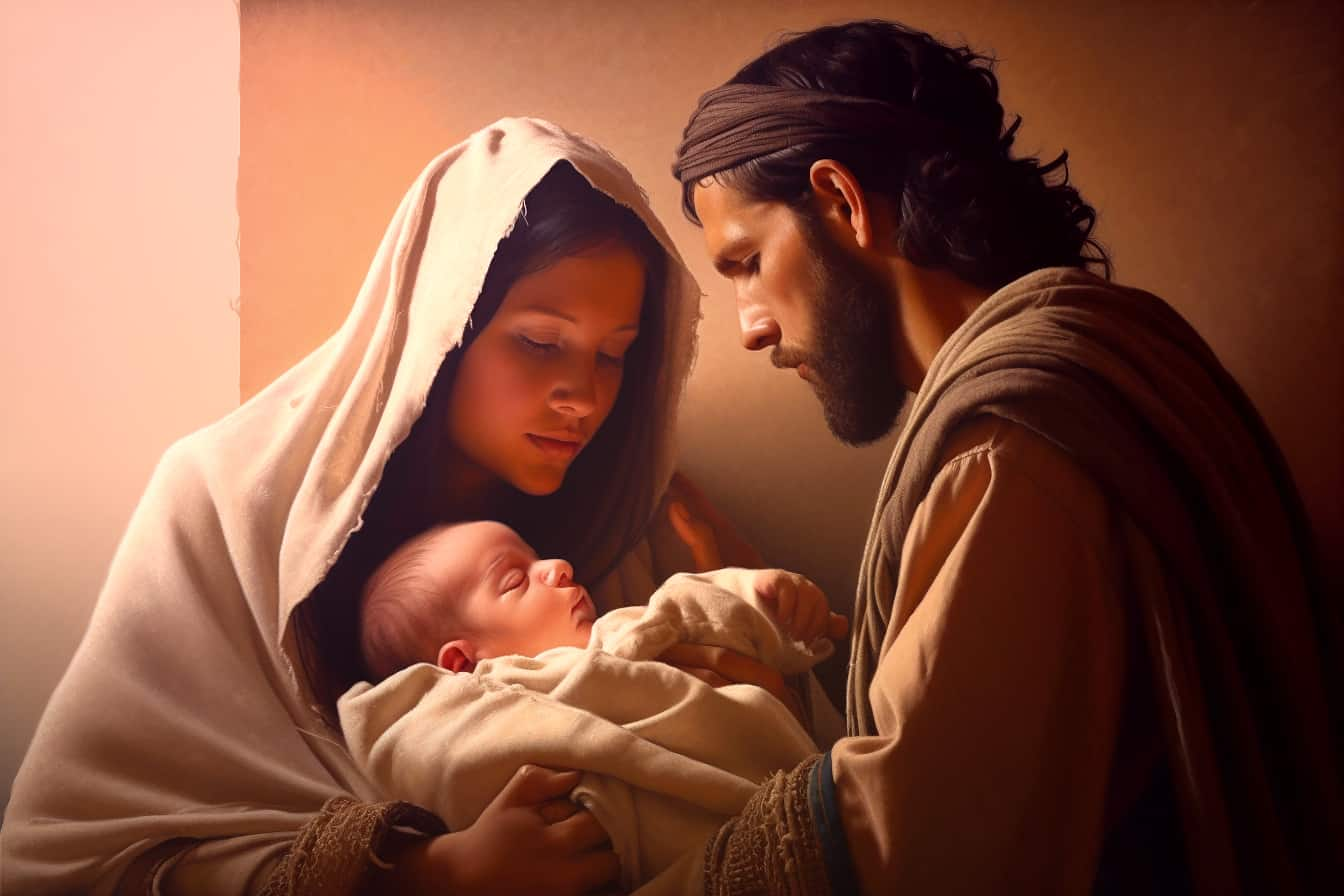Discover Jesus \ Topic \When Was Jesus Born?
Tag
When Was Jesus Born?
Jesus was born at noon on August 21, 7 BCE in Bethlehem of Judea. His birth's significance was later woven into a legend about the Star of Bethlehem, tied to the astronomical event of a Jupiter-Saturn conjunction in 7 BCE.

Table of Contents
Summary
Jesus was born at noon on August 21, 7 BCE, in a manger after Mary experienced the usual pangs of childbirth starting from the dawn of that day. His birth is historically significant, noted for the traditional Jewish rites that followed, including circumcision and naming on the eighth day. The narrative of the Star of Bethlehem, which traditionally led the Magi to Jesus, is derived from notable astronomical events, including a conjunction of Jupiter and Saturn in 7 BCE. These natural occurrences were later woven into the legend of a guiding star, illustrating how ancient peoples often interpreted celestial events as supernatural signs linked to significant earthly events.
The Birth of Jesus
Mary was restless all night, so neither she nor Joseph got any sleep. By the dawn of day, the pangs of delivery had set in, and at noon on August 21, 7 BCE, Mary gave birth to a boy child with the assistance and kindness of her female companions. Jesus of Nazareth was born into the world, wrapped in the garments Mary had packed for such an eventuality, and placed in a nearby manger.
The promised child was born the same way as all infants before and after have come into the world, and on the eighth day, according to Jewish tradition, he was circumcised and formally named Joshua (Jesus).
New Accommodations
The next day after Jesus' birth, Joseph made his enrollment. When they saw a man they had spoken with two nights before in Jericho, he took Joseph to a wealthy acquaintance who had a room at the inn and said he would gladly trade quarters with the Nazareth couple. That afternoon, they walked up to the inn, where they stayed for nearly three weeks before finding shelter in the home of a distant relative of Joseph.
Consultation and Decision
The second day following Jesus' birth, Mary informed Elizabeth that her child had arrived, and in response, Joseph was invited to Jerusalem to discuss all of their business with Zacharias. The following week, Joseph traveled to Jerusalem. Zacharias and Elizabeth were sure that Jesus would be the Jewish deliverer, the Messiah, and that their son John would be his chief of assistants, his right-hand man of destiny. And because Mary shared similar beliefs, it was not difficult to persuade Joseph to stay in Bethlehem, the City of David, so that Jesus may grow up to become David's successor on the throne of all Israel. As a result, they stayed in Bethlehem for over a year, with Joseph working some of the time as a carpenter.
Celestial Celebrations
At the noontide birth of Jesus, the seraphim stationed on earth, led by their leaders, sang hymns of glory over the Bethlehem manger, but humans did not hear these words of praise. No shepherds or other earthly creatures came to pay tribute to the infant of Bethlehem until the arrival of some priests from Ur, whom Zacharias had dispatched down from Jerusalem.
The Journey of the Wise Men
Three Mesopotamian priests had previously been told by a peculiar religious instructor in their land that he had a dream in which he was instructed that "the light of life" was about to arrive on earth as a child and among the Jews. And the three teachers set out looking for this "light of life." After weeks of useless searching in Jerusalem, they were ready to return to Ur when Zacharias encountered them and revealed his belief that Jesus was the object of their journey. He then directed them to Bethlehem, where they discovered the child and left their gifts with Mary, his earth mother. The baby was about three weeks old at the time of their visit.
The Star of Bethlehem: Myth and Reality
These wise men saw no star to direct them to Bethlehem. The wonderful narrative of the star of Bethlehem began in this way: Jesus was born on August 21 at noon, 7 BCE. On May 29, 7 BCE, Jupiter and Saturn formed an exceptional conjunction in the Pisces constellation. A notable astronomical fact is that comparable conjunctions happened on September 29 and December 5 of the same year. Based on these exceptional but natural happenings, the subsequent generation's well-meaning zealots created the enticing narrative of the star of Bethlehem, which led the loving Magi to the manger, where they saw and adored the newborn infant. Oriental and near-Oriental minds love fairy stories and are constantly creating magnificent mythology about the lives of their religious leaders and political heroes. In the absence of printing, when most human information was passed down from generation to generation, myths were easily transformed into traditions, which were finally regarded as realities.
Suggested Reading from this Essay

Related Topics
Establishing Jesus' Ancestry
Jesus’ ancestry blended humanity’s diversity for divine mission.
Star of Bethlehem
Star of Bethlehem legend born from ancient astronomy.
Concepts of the Expected Messiah
The contrasts of a political and spiritual Messiah.
Contributors
Mike Robinson, Gary Tonge
